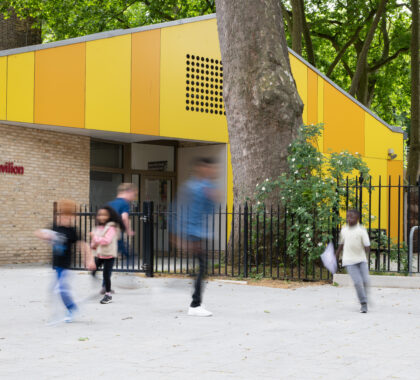Show filters
Theme
Area
Category

TCRU/Coram joint annual lecture – Welfare inequalities: An existential challenge for social work?
In this joint annual lecture organised by TCRU (Thomas Coram Research Unit) and Coram, Professor Rick Hood will explore the significance of welfare inequalities in relation to social work and social care.
 8 May 2024 - 5 - 7pm
8 May 2024 - 5 - 7pm
 Coram Campus, 41 Brunswick Square, London, WC1N 1AZ
Coram Campus, 41 Brunswick Square, London, WC1N 1AZ
 Free
Find out more and book
Free
Find out more and book
 Add to calendar
Add to calendar

Learning from Research: responses to, and experiences of, extra-familial risk and harm
This event will introduce participants to findings from two research projects focused on better understanding both professional responses to, and young people’s experiences of, extra-familial risk and harm.
 25 April 2024 - 2pm - 3.45pm
25 April 2024 - 2pm - 3.45pm
 Online via Zoom
Online via Zoom
 Free for CoramBAAF members
Book on the CoramBAAF website
Free for CoramBAAF members
Book on the CoramBAAF website
 Add to calendar
Add to calendar
Advocacy Masterclass: Non Instructed Complaints
Learn about the challenges of non-instructed advocacy (NIA) complaints and receive useful practical tips on how to go about making them. This will include reflecting on how to appropriately word and structure NIA complaints, as well as how to ensure they remain within advocacy boundaries so they most likely achieve positive advocacy outcomes. Participants will be expected to have already undertaken NIA training and/or had significant experience of advocating for young people on a non-instructed basis. Some prior knowledge of the Children Act complaints process will be useful.
Pathway Planning Masterclass
Take part in our one-hour masterclass aimed at giving a brief yet detailed snapshot on pathway planning for all children in care from the age of 16 and care leavers up to age 21/25. The session will explore what we can do as advocates to support young people in the process and how to challenge a poor plan.

An introduction to private fostering
This course is an opportunity to explore the legal and practice framework of private fostering, including thinking about how to identify and work with this often unseen group of children. It will include explanation of the respective responsibilities of parents, private foster carers and local authorities, when private fostering arrangements are made. Since the war in Ukraine, some Ukrainian children who have travelled to the UK for safety, are living in private fostering arrangements, and this introductory course will also briefly explore their needs.
 5 June 2024 - 9.45am - 1.00pm
5 June 2024 - 9.45am - 1.00pm
 Online via Zoom
Online via Zoom
 From £75
Book on the CoramBAAF website
From £75
Book on the CoramBAAF website
 Add to calendar
Add to calendar

Becoming a culturally competent social worker
Cultural competence involves ensuring our attitudes, communication and behaviours recognise and respect cultural differences. As social workers, in whatever our role, it’s essential we are continually working towards cultural competence in our practice. In this open course, you will be supported to explore some of the key concepts within cultural competence and anti-oppressive practice, and then apply this learning to your practice. It will include exploration of how personal and professional identities can impact on the decisions we make in our professional roles.
 3 June 2024 - 10.00am - 4.00pm
3 June 2024 - 10.00am - 4.00pm
 Online via Zoom
Online via Zoom
 From £126
Book on the CoramBAAF website
From £126
Book on the CoramBAAF website
 Add to calendar
Add to calendar
